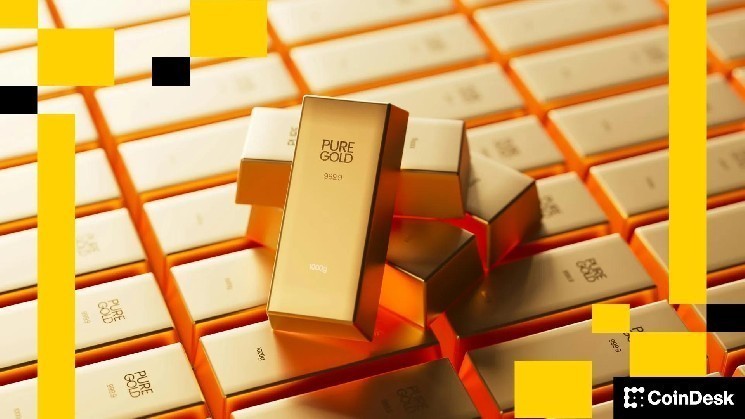Gold (XAU), both a traditional store of value and a “non-productive” asset, is rapidly growing to a market capitalization of over $30 trillion by 2025, dwarfing digital gold, Bitcoin, and US-listed tech giants alike.
The yellow metal's price per ounce soared 66% to an all-time high of about $4,380, with prices up 13% in October alone, according to TradingView data.
The rally has pushed gold's market capitalization to about $30.42 trillion, based on an estimated 216,265 tonnes of above-ground global supply, according to a report by the World Gold Council.
Nvidia (NVDA) is perhaps the most influential company in the world due to its fundamental role in driving the AI revolution, but it holds a distant second place with a market capitalization of $4.42 trillion. This is followed by Microsoft (MSFT), Apple (AAPL), Alphabet (Google), Silver, and Amazon (AMZN).
Meanwhile, Bitcoin BTC$108,218.84considered digital gold, ranked 8th with a market capitalization of $2.17 trillion.
Unproductive gold warns of economic distortions
Gold's premium over tech giants does not necessarily reflect a positive outlook for the global economy, as it is an unproductive asset.
Unlike stocks, bonds, and real estate, gold does not generate dividends, interest, or rent, nor does it contribute directly to economic activity. Its price is directly tied to its appeal as a traditional safe haven and store of value assets, as opposed to underlying cash flow or output.
So the fact that it's trading at a significant premium to the most valuable tech companies is likely a clear sign of economic weakness. This suggests that investors are seeking refuge in perceived safety amid widespread economic uncertainty.
Citadel CEO Ken Griffin recently expressed great concern about the tendency of investors to view gold as a safer asset than the US dollar, arguing that the yellow metal's record price hike was a warning signal for the stability of the US economy.
According to the analysis, this rise is being driven by fiscal indiscretion in the U.S. and the developed world as a whole, persistent inflation, geopolitical tensions, and expectations for Fed rate cuts. The consensus is that the upward trend will continue.
The characteristics that describe gold as a non-productive store of value also apply to Bitcoin. However, the price of gold has risen sharply this year, soaring more than 60%, while Bitcoin is up a more modest 16% in 2025. Industry observers are optimistic that when the soaring price of gold eventually subsides, investment capital could move to cheaper digital stores of value.

